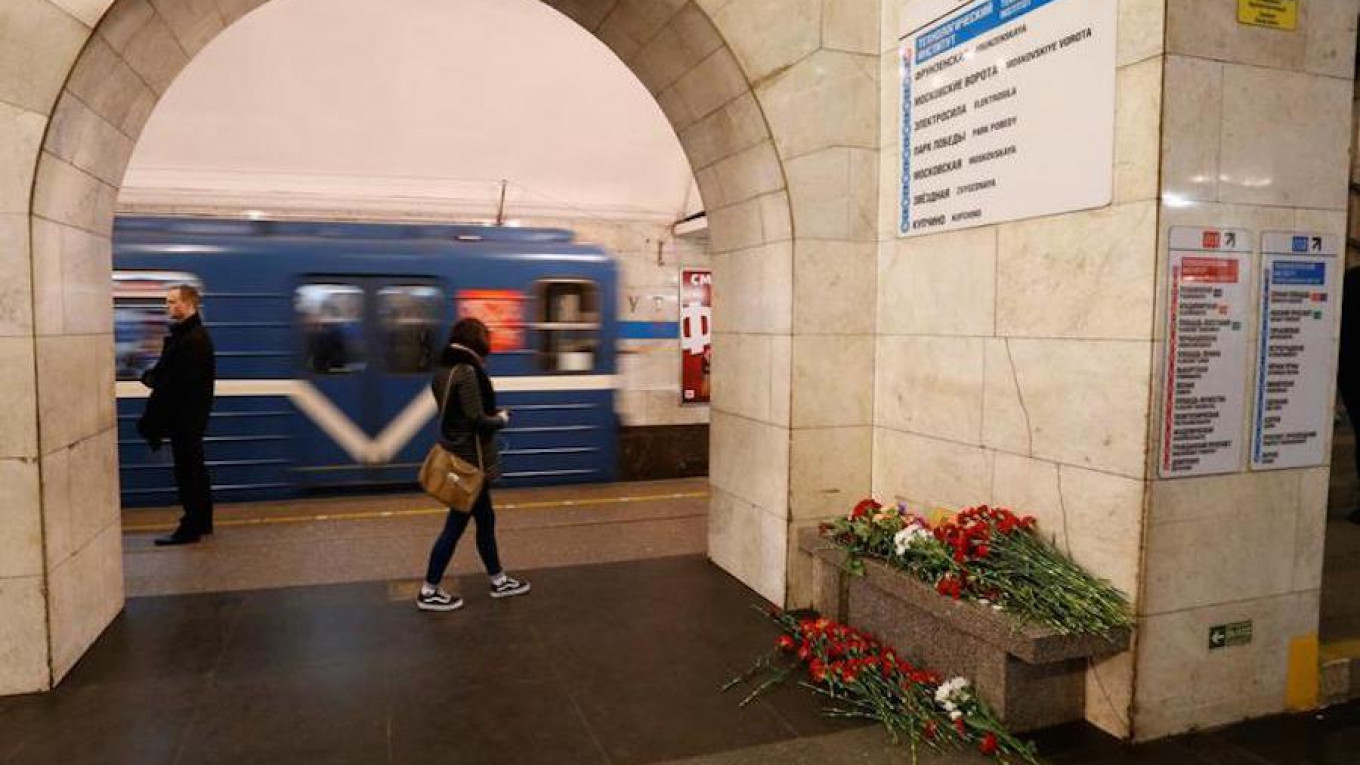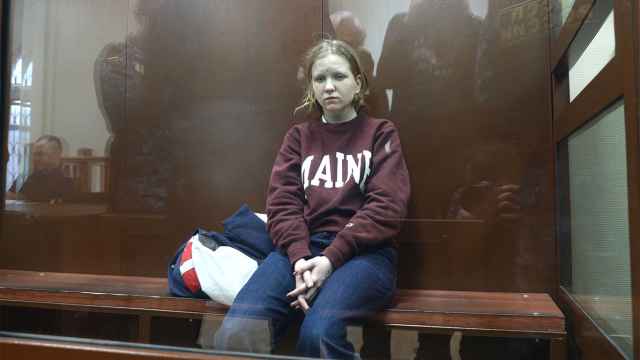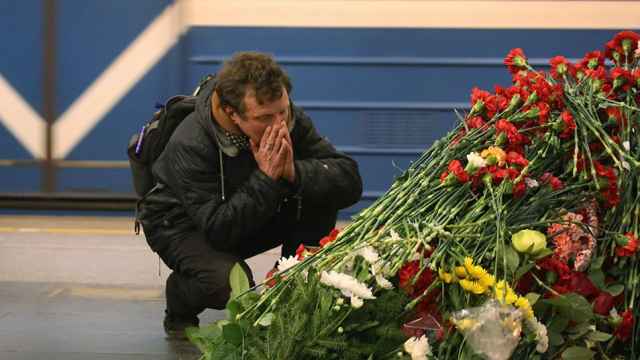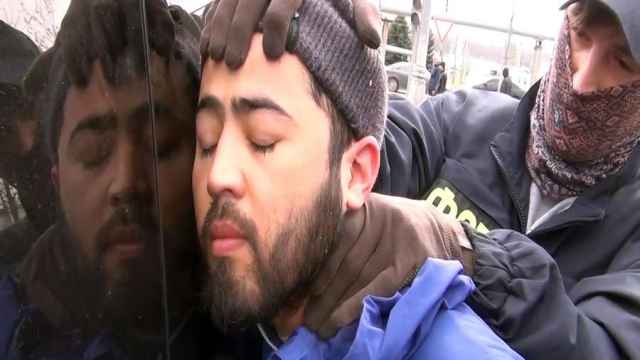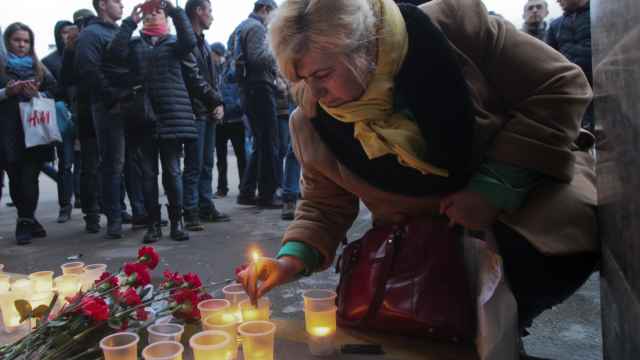On Monday afternoon, a bomb exploded in St. Petersburg’s subway system, killing 14 and injuring dozens. In the ensuing chaos, the city authorities shut down the entire metro system, the city’s main form of public transport. Thousands of residents were left stranded far from home in St. Petersburg’s unforgivingly cold, wet and windy climate.
But a spirit of solidarity electrified the city. Petersburg’s above-ground public transportation system, in tandem with taxi services such as Uber, cancelled fares and drove people home free of charge. City residents also lent a hand, with local drivers coordinating with self-organised online groups to help people get to where they need to go. Gas stations provided them with free fuel.
Small businesses took part too. A number of cafes and restaurants provided tea and coffee free of charge to those walking home or waiting for traffic jams to dissolve. The social networks Facebook and Vkontakte were filled with posts from people living or working downtown inviting those in need to their offices and homes, offering a warm drink or a couch to rest on.
What made this wonderful reaction possible? After all, it was only a few years ago that Moscow’s own terrorist attacks were met with opportunistic taxi drivers raising their prices for those leaving the scene of the explosions.
First, times have changed. Society — both in St. Petersburg and elsewhere in Russia — has become more friendly and open. Many grassroots movements have sprung up, making coordination between people much easier. As these groups campaigned, whether in support of sick children or monitor municipal elections, their members realized that self-organization can be effective. And the technical skills and tools that such initiatives developed — from coordinating online to forming self-help groups — re-emerged during St. Petersburg’s time of need.
The city’s geography also played a role. St. Petersburg is relatively large, but it is not a sprawling metropolis like Moscow. Distances are more walkable and voluntary efforts are easier to coordinate.
The residents of the city are also more connected with it emotionally than people from other cities. Most of the local protest campaigns, for example, are aimed at preserving the city’s cultural heritage and conserving landmarks. Notable examples of this are the recent campaigns against Gazprom building a skyscraper in the city center, and the new wave of protests against the decision to hand control over the iconic St. Isaac’s Cathedral to the Russian Orthodox Church.
Still, the reactions in St. Petersburg this week were similar to those following the attacks in Paris and Brussels. Tragic events tend to bring people together. There was almost no panic or anger. Many residents, having felt sad and lost, were speaking about a clear need to help others. People were willing to share their pain and to provide emotional support. This phenomenon was present the day after the blast, especially on the re-opened subway.
Last but not least, St.Petersburg is indeed unique. It is a city with a notoriously bad climate, a place far less wealthy than its imaginary competitor (Moscow), and a former imperial capital, still deploring its loss of status. All this provokes a special mixture of love and hate, inspiration and exhaustion, pride and depression in its residents. They may not have much in the way of sun, money or even professional opportunities, but they seem to have time for each other.
St. Petersburg has an identity, one that is unique in Russia. That identity attracts people from around the world to visit the city, seeking the spirit that makes Russia’s “cultural capital” special. We saw the city’s special character over the last few days, when Petersburgers banded together to help each other in the aftermath of a tragedy. I hope we’ll see more of this civic spirit in the future.
Angelina Davydova is a journalist based in St. Petersburg
A Message from The Moscow Times:
Dear readers,
We are facing unprecedented challenges. Russia's Prosecutor General's Office has designated The Moscow Times as an "undesirable" organization, criminalizing our work and putting our staff at risk of prosecution. This follows our earlier unjust labeling as a "foreign agent."
These actions are direct attempts to silence independent journalism in Russia. The authorities claim our work "discredits the decisions of the Russian leadership." We see things differently: we strive to provide accurate, unbiased reporting on Russia.
We, the journalists of The Moscow Times, refuse to be silenced. But to continue our work, we need your help.
Your support, no matter how small, makes a world of difference. If you can, please support us monthly starting from just $2. It's quick to set up, and every contribution makes a significant impact.
By supporting The Moscow Times, you're defending open, independent journalism in the face of repression. Thank you for standing with us.
Remind me later.



